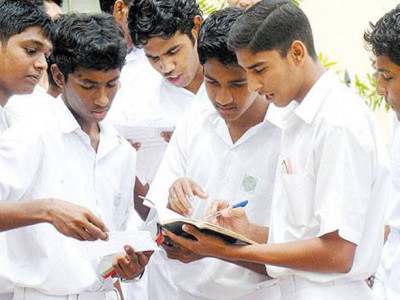(COLOMBO, LANKAPUVATH) – The progress on improving nutritional care of women in South Asia including Sri Lanka during and after pregnancy is slow, impacting on their children’s survival, growth and development, the United Nations Children’s Fund (UNICEF) in Sri Lanka says.
According to UNICEF, in Sri Lanka and other South Asian countries women lack the nutritional care they need urgently and nearly 32 percent of pregnant women in Sri Lanka are anemic.
The issue will be discussed at a three-day regional conference being held in Kathmandu this week on actions to accelerate improvements in women’s nutrition across South Asia.
Organized jointly by the South Asian Association for Regional Cooperation (SAARC) and the UNICEF, the conference is bringing together government representatives, UN partners and civil society organizations from all countries in South Asia, with regional and global experts.
Poor nutrition deprives women of their health and well-being. Over one-third of the world’s anemic women live in South Asia, and no country is on track to meet the global nutrition target to reduce anemia by 50 percent women by 2025. In Sri Lanka, nearly 32 per cent of pregnant women are anemic.
Pregnant and breastfeeding women need better nutrition to protect children from stunting and disease and children who are born small due to poor maternal nutrition start life at a huge disadvantage. They are more likely to become wasted or stunted in early life, do less well at school, earn lower wages in adulthood and suffer diabetes and chronic heart diseases later in life. Evidence shows that maternal nutrition is strongly linked to child stunting, which effects 62 million children in the region.
Many adolescents and women also face serious obstacles in meeting their right to health and nutrition. Over 45 percent of women in Sri Lanka are overweight or obese – indicating a serious double burden of malnutrition within the adult population.
“Gaps in national policies, programs and care services during pregnancy, combined with poverty and customary practices mean that women fail to receive the nutritional care they need for a healthy pregnancy,” said Jean Gough, Regional Director for UNICEF in South Asia.
Essential nutrition services, including dietary counselling and iron-folic acid supplements, are reaching too few women during pregnancy. Underlying causes include the under-investment in maternal health services, the low prioritization of nutrition services, and the low reach of care for pregnant women. Furthermore, there is poor understanding at all levels, from policy makers to families, of how maternal nutrition impacts on the health, survival and development of women and the future generation of children.
Delegates will agree upon a set of key recommendations at the end of the conference to transform maternal nutrition. “Women’s nutrition needs special attention. Governments need to look at how we can provide healthy diet and lifestyle options. We must strive towards a collective effort that involves health providers, community based workers, families, schools, and mothers themselves,” said Amjad Hussain Sial, Secretary General of the South Asian Association for Regional Cooperation (SAARC).




